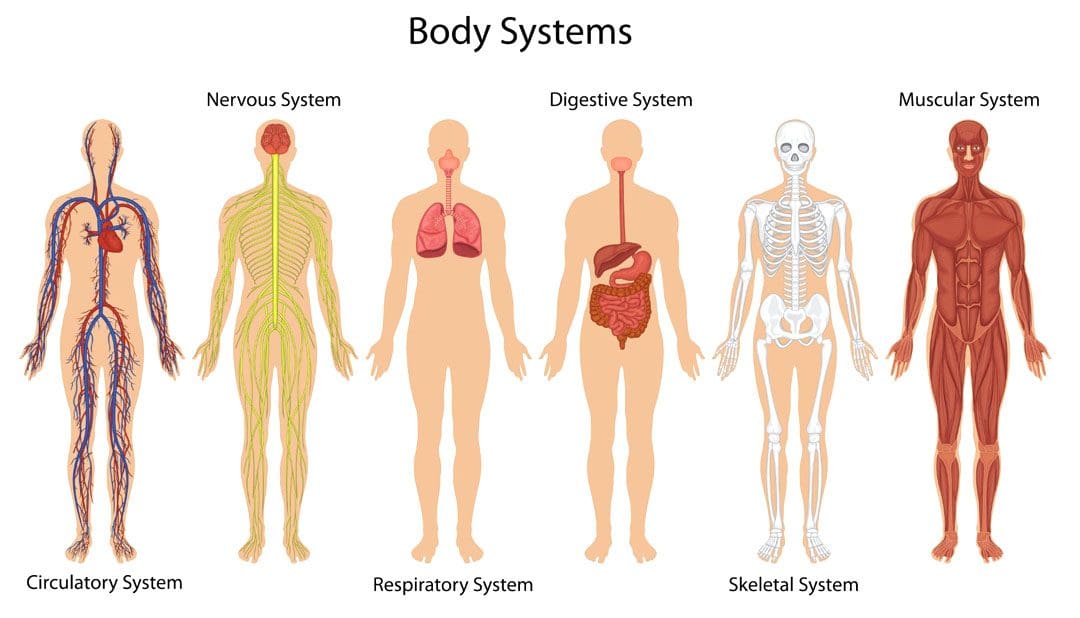
Nutrition and Chiropractic Care: Chiropractic care treats the body as a whole. It can relieve and alleviate ailments from injuries, conditions, or diseases to help maintain optimal health. A treatment plan includes nutrition recommendations to support the body’s systems, reduce inflammation responses, build muscle and bone strength, and maintain chiropractic adjustments.

Table of Contents
Nutrition and Chiropractic Care
Individuals can influence musculoskeletal system health by balancing what they consume. If food choices are unhealthy, the benefits of chiropractic may be lessened from the negative effects of unhealthy foods on the body.
Muscle Repair
Muscle injuries are common from normal wear and tear, work, sports, and personal injuries. Calorie-heavy foods can lead to increased weight. Increased weight puts extra stress on the body as it is healing, making the healing process last longer and less effective. A recommended nutritional plan to build muscle strength around the injured areas will supplement chiropractic care.
- Adding protein-rich foods increases muscle building and repair.
- Foods include sweet potatoes, salmon, eggs, spinach, bananas, nuts, and seeds.
Bone Health
Misalignment, imbalances, and injuries can be caused in part by weakness in various bones.
- Calcium is integral in improving bone strength.
- Foods high in calcium can benefit chiropractic adjustments by strengthening the skeletal system.
- A balanced intake of calcium and magnesium helps build bone strength and decreases the chances of developing osteoporosis.
- Magnesium can be found in almonds, spinach, avocado, cashews, and bananas.
Digestion
Chiropractic treatments also help promote healthy digestion by relieving tension in the stomach and helping to restore proper function in the organs and muscles. Regular chiropractic has been shown to reduce symptoms associated with constipation, bloating, diarrhea, nausea, irritable bowel syndrome -IBS, Crohn’s disease, colitis, GERD – Gastroesophageal Reflux Disease, and vomiting.
- Foods that help maintain a healthy gut include brown rice, beans, oats, and fruits and vegetables.
Respiratory Health
Breathing problems come in various forms depending on the individual and their case. The ribs, upper chest, and neck muscles all support breathing. Stress can cause rapid and shallow breathing that overworks these muscles. Breathing problems often correlate with other health issues, including back and neck pain, poor digestion, fatigue, and tension headaches. Chiropractic pinpoints subluxations or undue interruption of the nerve signals and corrects any misalignments so that nerve signals flow properly.
- Foods that help with lung health include tomatoes, apples, berries, and broccoli.
Nervous System Health
Chiropractic focuses on restoring the body to optimal function so that it can heal through normal nervous system function. Treatment resets the vertebrae into proper alignment, reducing swelling, blockages, and nerve stress, allowing the nervous system to function at full capacity.
- Foods that can help are dark chocolate, spinach, avocados, garlic, and asparagus.
Circulatory System
Chiropractic adjustments increase blood circulation. Adjustments and massage loosen the muscles attached to the specific areas, which also promotes the flow and movement of waste in the lymphatic system in and out of specific areas.
- Foods that help with circulation include onions, beets, citrus fruits, tomatoes, walnuts, and fatty fish.
Nutrition and chiropractic care go hand in hand. When the body gets the nutrition it needs, it works more efficiently.
An unhealthy diet can cause sluggishness, low energy, and increase inflammatory responses that can lead to chronic conditions. A nutritionist can create a personalized nutrition plan to maximize the benefits as they work together to improve overall health and wellness.
Intermittent Fasting
References
Elma, Ömer, et al. “Chronic Musculoskeletal Pain and Nutrition: Where Are We and Where Are We Heading?.” PM & R: the journal of injury, function, and rehabilitation vol. 12,12 (2020): 1268-1278. doi:10.1002/pmrj.12346
Elma, Ömer, et al. “Do Nutritional Factors Interact with Chronic Musculoskeletal Pain? A Systematic Review.” Journal of clinical medicine vol. 9,3 702. 5 Mar. 2020, doi:10.3390/jcm9030702
Holtzman, Denise, and Jeanmarie Burke. “Nutritional counseling in the chiropractic practice: a survey of New York practitioners.” Journal of chiropractic medicine vol. 6,1 (2007): 27-31. doi:10.1016/j.jcme.2007.02.008
Koehler, Karsten, and Clemens Drenowatz. “Integrated Role of Nutrition and Physical Activity for Lifelong Health.” Nutrients vol. 11,7 1437. 26 Jun. 2019, doi:10.3390/nu11071437
Lee, Mi Kyung, et al. “The use of nutritional guidance within chiropractic patient management: a survey of 333 chiropractors from the ACORN practice-based research network.” Chiropractic & manual therapies vol. 26 7. 20 Feb. 2018, doi:10.1186/s12998-018-0175-1
Mangano, Kelsey M et al. “Dietary protein is associated with musculoskeletal health independently of dietary pattern: the Framingham Third Generation Study.” The American journal of clinical nutrition vol. 105,3 (2017): 714-722. doi:10.3945/ajcn.116.136762
Mendonça, Carolina Rodrigues et al. “Effects of Nutritional Interventions in the Control of Musculoskeletal Pain: An Integrative Review.” Nutrients vol. 12,10 3075. 9 Oct. 2020, doi:10.3390/nu12103075
Tajary, Zahra, et al. “Musculoskeletal Pain Is Associated with Dietary Diversity Score among Community-Dwelling Older Adult: A Cross-Sectional Study.” International journal of food science vol. 2022 4228925. 7 Feb. 2022, doi:10.1155/2022/4228925
Disclaimers
Professional Scope of Practice *
The information herein on "Nutrition and Chiropractic Care: A Guide to Optimal Health" is not intended to replace a one-on-one relationship with a qualified health care professional or licensed physician and is not medical advice. We encourage you to make healthcare decisions based on your research and partnership with a qualified healthcare professional.
Blog Information & Scope Discussions
Welcome to El Paso's wellness blog, where Dr. Alex Jimenez, DC, FNP-C, a board-certified Family Practice Nurse Practitioner (FNP-C) and Chiropractor (DC), presents insights on how our team is dedicated to holistic healing and personalized care. Our practice aligns with evidence-based treatment protocols inspired by integrative medicine principles, similar to those found on dralexjimenez.com, focusing on restoring health naturally for patients of all ages.
Our areas of chiropractic practice include Wellness & Nutrition, Chronic Pain, Personal Injury, Auto Accident Care, Work Injuries, Back Injury, Low Back Pain, Neck Pain, Migraine Headaches, Sports Injuries, Severe Sciatica, Scoliosis, Complex Herniated Discs, Fibromyalgia, Chronic Pain, Complex Injuries, Stress Management, Functional Medicine Treatments, and in-scope care protocols.
Our information scope is limited to chiropractic, musculoskeletal, physical medicine, wellness, contributing etiological viscerosomatic disturbances within clinical presentations, associated somato-visceral reflex clinical dynamics, subluxation complexes, sensitive health issues, and functional medicine articles, topics, and discussions.
We provide and present clinical collaboration with specialists from various disciplines. Each specialist is governed by their professional scope of practice and their jurisdiction of licensure. We use functional health & wellness protocols to treat and support care for the injuries or disorders of the musculoskeletal system.
Our videos, posts, topics, subjects, and insights cover clinical matters, issues, and topics that relate to and directly or indirectly support our clinical scope of practice.*
Our office has reasonably attempted to provide supportive citations and has identified the relevant research studies or studies supporting our posts. We provide copies of supporting research studies available to regulatory boards and the public upon request.
We understand that we cover matters that require an additional explanation of how they may assist in a particular care plan or treatment protocol; therefore, to discuss the subject matter above further, please feel free to ask Dr. Alex Jimenez, DC, APRN, FNP-BC, or contact us at 915-850-0900.
We are here to help you and your family.
Blessings
Dr. Alex Jimenez DC, MSACP, APRN, FNP-BC*, CCST, IFMCP, CFMP, ATN
email: coach@elpasofunctionalmedicine.com
Licensed as a Doctor of Chiropractic (DC) in Texas & New Mexico*
Texas DC License # TX5807
New Mexico DC License # NM-DC2182
Licensed as a Registered Nurse (RN*) in Texas & Multistate
Texas RN License # 1191402
ANCC FNP-BC: Board Certified Nurse Practitioner*
Compact Status: Multi-State License: Authorized to Practice in 40 States*
Graduate with Honors: ICHS: MSN-FNP (Family Nurse Practitioner Program)
Degree Granted. Master's in Family Practice MSN Diploma (Cum Laude)
Dr. Alex Jimenez, DC, APRN, FNP-BC*, CFMP, IFMCP, ATN, CCST
My Digital Business Card






